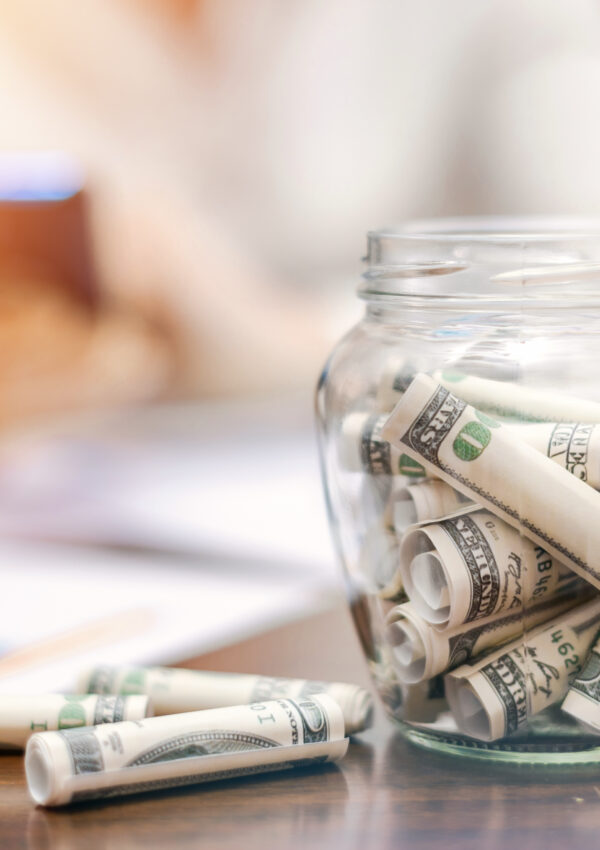The New York Federal Reserve reveals that in the fiscal year ending 2020, consumer debt reached a historic high of $14.56 trillion. Here we’re going to go through 5 foolproof strategies to reduce your debt and not be part of this statistic.
Considering the pattern of consumer debt in previous years, we have observed an increase of $414 billion over 2019 and about 1.9 trillion dollars from the third quarter of 2008.
Well, not surprisingly, we can relate that to the recession that hit us 15 years ago, and just about when things are brought back in perspective, the recent pandemic strikes its way.
All of those impacts result in the loss of jobs and income sources, debt, and the list goes on.
This is so financially devastating, and as you move to stand up on your feet and regain a financial stand on your own, the debts you’ve been owing became nuisances and are standing on your way to progress.
This leads us to one question many people have been asking; how can I reduce my debt?
Initially, debts have numerous advantages; they allow you to buy that fancy car you’ve always admired and then pay in installments, or pay your kids’ tuition and also help you out when you desperately need financial settlements and more.
However, the inconvenience of things starts when it comes time to pay, and if you don’t exercise care, it escalates as the debt gets out of control.
While repaying certain debts may take you a year, less, or even longer and can be a lot of a burden, you can still get things under control by putting in place a loan repayment plan, and the earlier you start, the better.
There are numerous tips and strategies you can implement to make debt repayment less hassle.
If you are determined to repay your debt now, the following are strategies that you must consider, and since they have helped so many people out of debt, they must also work for you.
1. Stop Accumulating More Debt
If you’re wondering about the best way to confront your debt, and quench your thirst for answers on how to reduce your debt question, start by putting a stop sign to accumulating more debts.
Although that does not make you pay down your current debt, it keeps things under control.
You must first stop accumulating more debt for yourself and decide to deal with the issue at hand, i.e., paying off the existing debt.
There can be so much temptation around, sparking your emotions into taking on more debt, so this is something you have to conquer and stand by your words;
“I’m taking a loan break, and if this means freezing my credit card, fine.”
2. Pay Above Minimum Repayments
When trying to reduce your debt, it is best to do the math to figure out how long it will take you to pay off your debt.
Will that take 12 months, one year, two years, or even ten years?
When you take long to pay off these loans or credits, you get fed up.
A good strategy is to accelerate the loan repayment to pay it off for the greater good.
You can do that by paying more than the set minimum repayment.
If you have to pay a minimum of $500 a month over five years, you can decide to double that, and in under three years, you’re done with it.
While doubling can be challenging for you, given your financial situation, you can choose to add a small percentage at least, which could be 10, 20, or 30 percent.
3. Pay Off One After the Other
Do you remember how snowflakes clump together into a giant snowball?
This is one good strategy you can implement to repay your debt
quickly.
You must attend to one thing at a time.
You can start paying off your smaller debt, followed by a larger one, which will give you a feeling of relief and confidence in repaying more significant debts.
When you repay your debt starting with the most negligible, you can focus all your resources on dealing with larger ones.
It’s known as the “snowball effect” and is very important because it keeps you organized to cope with your debts and alleviates the trauma of many debts and confusion over not knowing which to start with.
There are a lot of other debt reduction strategies you can implement, and while this may be a good idea, it doesn’t always have to be the perfect choice for you.
You may also want to look at those with the highest interest rates first and then go after those with lower interest rates later.
4. Start a Side Job
The common debtor’s dream is to pay these debts within the minimum possible time frame.
If your income is not enough to make your dream a reality, you can consider increasing your income.
That way, you will be in a better position to repay your debt or credits as soon as possible.
Also, take into consideration whether you have enough time to manage a second job or not.
If it’s a no, you can look at ways to make passive income, leveraging the various opportunities you can find through the internet to ultimately be able to reduce your debt profile quicker.
5. Create a Spending Budget
Whether or not you allotted a percentage to your monthly debt payments, it will be substantive if you can create an expense budget to manage your finances even better.
With a budget, you’ll be able to cut your expenses and go for the most important things.
With a somewhat tight budget, you will be able to generate extra amounts at the end of the day, which you can project into your loan repayment plan.
How To Reduce Your Debt To Almost Zero
There are times in life when someone has to take out loans or spend on credit cards, and that can be inevitable.
However, we have to find a way out of this, where the loan repayment plan comes into play.
It’s not something you’re going to enjoy; paying for something you might not even account for, but since repayment is necessary for achieving financial stability, it would be great if you could repay those loans once and for all.
Luckily, many tips help formulate a foolproof financial strategy to get out of debt.
Discussed above are five tips worth considering in response to how I reduce my debt question.
I’m sure you have a few more tips, so feel free to share your comments; let’s get something going.
Read Also:






Leave a Reply